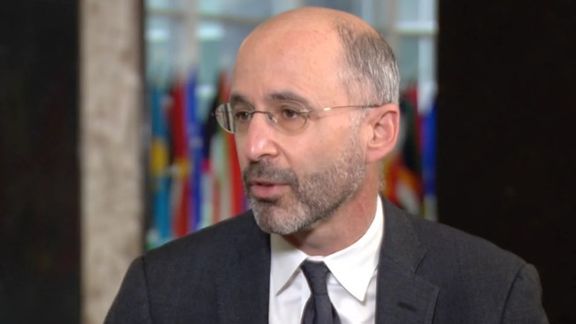Little Expectation Of Success As Iran Nuclear Talks Resume Monday

Talks resume in Vienna between Iran and world powers Monday after a five-month gap with scant optimism of reviving the 2015 deal limiting Tehran’s atomic program.

Talks resume in Vienna between Iran and world powers Monday after a five-month gap with scant optimism of reviving the 2015 deal limiting Tehran’s atomic program.
Since previous United States president Donald Trump pulled the US from the agreement in 2018, Washington has imposed ‘maximum pressure’ sanctions while Iran has since 2019 expanded its nuclear program beyond JCPOA limits.
The US presidential envoy on Iran, Robert Malley, told US public radio (NPR) this week that he was waiting to see what the new Iranian negotiators appointed by president Ebrahim Raisi (Raeesi) would “say when they’re at the table” when the Vienna talks resume.
“Obviously the indications they've given − and we're not the only ones who've heard those indications − are not particularly encouraging,” Malley said.
The envoy criticized Iran’s expressed desire for American guarantees that it would not withdraw once again from the deal, once renewed: “If those are the kinds of demands they make, that's tantamount to saying, we don't really want a deal; we just want to spend the next few months building our nuclear program.”
Plan B
NPR also interviewed Michael Singh, a senior security official in the George W Bush administration, who argued that the Biden administration − which came to office committed to reviving the JCPOA but has continued maximum pressure sanctions and introduced new ones − needed a ‘plan B’.
Malley told NPR only that the US was looking at “other efforts – diplomatic and otherwise” to curb Iran’s nuclear program. He said that if Tehran started “getting too close, too close for comfort [to capacity to make a weapon], then, of course, we will not be prepared to sit idly by.”
The administration of President Joe Biden is under domestic pressure . Some top Democrats in Congress are lukewarm at best and nearly all Republicans strongly opposed.
Formal talks in Vienna are between the remaining members of the JCPOA – China, France, Germany, Iran, Russia and the United Kingdom – so adding the complication that the US delegation in the Austrian capital takes part only indirectly.
Russia, China, Europe
Russia and China have called on both the US and Iran to return to the JCPOA, while insisting there is special onus on Washington as the party that left the agreement, even after it voted in favor at the United Nations Security Council.
While the three western European states’ position is formally similar to Russia and China – calling on both Washington and Tehran to adhere to the JCPOA – the E3 has expressed growing concern at the expanding Iranian nuclear program and at Iran’s limiting its cooperation with the International Atomic Energy Agency (IAEA) to that required under the Nuclear Non-Proliferation treaty (NPT).
The E3 told the IAEA board meeting this week that the Iran’s atomic activities, especially enriching uranium to 60 percent and using more advanced centrifuges, was “irreversibly reducing the counter-proliferation value of the JCPOA.”
Russia in contrast played down concerns over Iran expressed by IAEA chief Rafael Mariano Grossi. Moscow’s IAEA ambassador Mikhail Ulyanov said these were a “constant irritant” but had “little practical meaning in terms of proliferation risks.” Ulyanov accepted that while these issues needed to be “clarified and closed” the real challenge was restoring the JCPOA.
GCC, Israel
The Gulf Cooperation Council, in a statement from its Iran working group November 17, supported a return to the JCPOA, moderating its past opposition. The GCC said renewal would “help pave the way for inclusive diplomatic efforts to address all issues that are necessary to ensure sustainable safety, security and prosperity in the region.”
But Israel has maintained strong opposition to JCPOA revival. Defense Minister Benny Gantz said this week that any Iran agreement should restrict its missile program and regional alliances. Gantz emphasized his government’s commitment to “build our military might,” which Israeli media reported led to $1.5 billion allocated October for preparations to attack Iran.